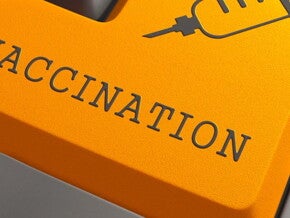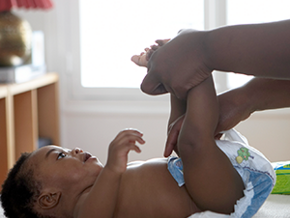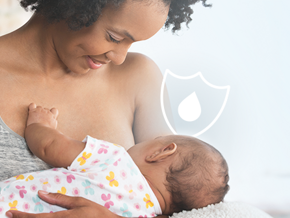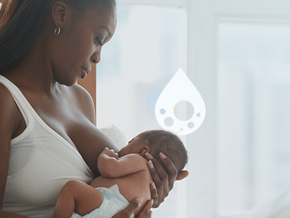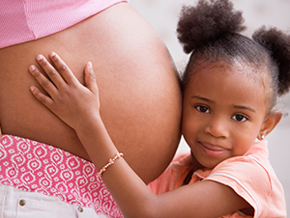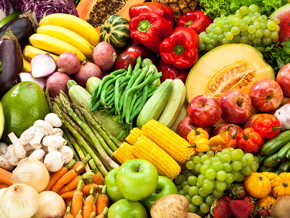
Signs of teething may begin a number of days before the actual eruption of the tooth. Symptoms of teething include:
- Swollen and tender gums
- Irritability
- Slightly raised temperature
- The urge for baby to put their finger or objects in the mouth
- Increased drooling
- Refusal to take in food
- Intermittent fussiness
- Restlessness and a change in sleep patter.
While cough, diarrhoea and fever are not usually associated with teething, you should see a doctor immediately if baby begins to show these symptoms.
Baby’s first tooth may appear when they are 4 to 10 months old. Some babies may experience teething later than others.
Natal teeth
This is a rare condition where there is the presence of a tooth on the day baby is born. This single tooth is usually malformed and may require medical attention before leaving the hospital.
Order of tooth eruption
Generally, as baby grows, his/her teeth will erupt in a particular order:
| Teeth | Stage |
| Central incisors | Between 6-12 months old |
| Lateral incisors | Between 9-16 months old |
| Canine teeth | Between 16-23 months old |
| First molars | Between 13-19 months old |
| Second molars | Between 22-24 months old |
By the time your child is 12 years, the roots of the 20 baby teeth would have been replaced by 32 permanent "adult" teeth. The wisdom teeth or third molars do not erupt till later in life.
How to sooth a teething baby
There are a number of practical home remedies to help soothe baby’s pain. You must keep in mind however, that what might work for your neighbour’s baby will not necessarily work for yours.
You can use a clean finger to gently rub baby’s sore gums to ease the pain. You can also allow baby to chew on a clean washcloth. Be sure to clean any items that may go into baby’s mouth.
If you’re nursing, you may dip your fingers in some cool water and massage her gums before you start feeding. This way, baby will not bite your nipple as she feeds.
Cold objects may also help soothe the gums and reduce inflammation. These include a cold spoon, a cold pacifier or a solid refrigerated teething toy or ring. Some experts however caution against using frozen teething toys since they could hurt baby’s mouth. Be sure not use cold objects for a prolonged period.
Be careful when giving baby items to put in her mouth so she doesn’t choke on them. You can give baby teething biscuits or crackers. While they may be comforting you need to ensure baby does not also choke on them.
Avoid the use of teething necklace. Their efficacy is not scientifically proven and they can be choking hazards for baby if the necklace breaks and baby swallows the beads.
Teething medicine
It is always advisable to see your doctor to prescribe the appropriate drugs to help provide relief. Do not give your baby drugs that contain aspirin. While ibuprofen may help, this should be done under the express instruction of your doctor.
Medications containing benzocaine can have potentially lethal side effects and should never be used to treat teething symptoms.
When to visit the dentist
Baby’s first visit to the dentist may take place when they are 1 year old. The latest visit when your child is 3 years old. You can also visit the dentist when you notice other oral inconsistencies, pain and unusual changes in baby’s teeth or gum.
Caring for baby’s new teeth
You can practice proper oral hygiene before baby’s first tooth erupts.
Use a clean washcloth to clean baby’s gums twice a day.
Since a child’s teeth is most vulnerable in the beginning, it is rarely necessary to use fluoridated toothpaste for children less than 3 years old. While fluoride is effective in reducing the development of cavities, check with a paediatrician before using them. Too much fluoride may permanently stain the teeth; a condition referred to as fluorosis.
You should not allow baby to go to bed with a feeding bottle. The formula, breast milk or juice may form cavities. Avoid sticky and sugary foods like candies that also cause cavity cavities.
Teething can be a difficult period for you and your baby. However, with the right knowledge you will be able to manage the situation and provide relief for baby.
